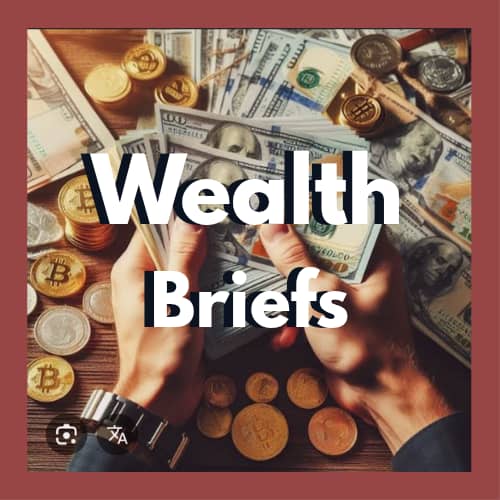The Quiet Crisis Behind Professional Success
To frame this as compassionately as possible, let’s begin with an uncomfortable truth.
As a professional, you spent more than a decade in educational pursuits to prepare yourself to be the very best in your field. You didn’t choose this path lightly. You made these sacrifices because you believe that what you do matters. Deeply. That your work carries with it not only the potential for healing but also the promise of improving lives.
While many of your peers were enjoying their twenties, you were immersed in clinical rotations, licensing exams, and endless hours of training. You worked weekends, sacrificed holidays, and poured your energy into becoming the skilled and compassionate expert you are today. And now, with a six-figure income—$300,000 or more annually—you stand as a symbol of professional accomplishment. From the outside, the picture is pristine. You are, by nearly every societal measure, a success.
But success, as it turns out, doesn’t always equate to security—or satisfaction.
The Illusion of Financial Security
Because behind the white coat, the title, and the paycheck lies a more complicated reality. One where financial anxiety quietly simmers. One where vacations are spent checking charts, and weekends blur into workdays. One where you wonder, often silently, “Why doesn’t this feel like freedom?”
You are not alone. And you are certainly not flawed. But the system you’ve been conditioned to operate within? That system is.

Income vs. Wealth: A Crucial Distinction
High income is not the same as wealth. This is a distinction that, while simple on the surface, unravels deep assumptions about what financial health actually is. Income is transitory. It is a measure of exertion, of time traded for money. Wealth, on the other hand, is enduring. It is a system. It is leverage. It is the ability to make choices from a place of autonomy rather than necessity.
Many high-income professionals mistakenly believe that income alone will carry them into financial independence. But the evidence—and lived experience—says otherwise. According to national studies, only a fraction of physicians, dentists, veterinarians, and psychologists actually accumulate the kind of capital that allows them to walk away from work if they chose to. While as many as 72% to 75% of physicians report being millionaires by their late forties, only 43% manage to save more than 20% of their income. For veterinarians, burdened by debt that often exceeds $300,000 and salaries that rarely top $100,000, the gap between income and freedom is even wider.
Dentists, once among the most reliable stewards of financial success, now face a shifting terrain. Practice ownership has declined from 85% in 2005 to just 72.5% today, and with it, the equity-based leverage that once drove long-term wealth. Costs for staffing, technology, and compliance have soared, and lifestyle expectations have grown just as quickly.
Where Does the Money Go?
Let’s walk through a common scenario: a professional, stepping out of training into a full-salaried position, sees their income jump from $70,000 to $300,000. Understandably, they upgrade their home—from $3,000 per month to $6,000. They lease a car, moving from an $800 payment to $1,500. They take better vacations—$15,000 per year instead of five. What seems like well-earned comfort quickly becomes financial drift. These changes alone account for more than $54,000 in additional annual spending. If redirected into investment accounts instead, even with modest growth assumptions, this could yield over a million dollars in two decades. If invested in high-performing vehicles like private syndications yielding 18% compound returns, that figure climbs to over $3.6 million.
The difference is not sacrifice. The difference is structure. Intentionality. Leverage.
Compound Interest and the Cost of Delay
And yet, many delay building that structure. They say, “I’ll save after I pay off the loans,” or “I’ll invest once the kids are grown,” or “I’ll start once I’m earning just a little more.” But compound interest is agnostic to intention. It rewards time, not good intentions. Delaying ten years can mean the difference between $3.6 million and just $700,000. You don’t catch up to compound interest. You either use it or you lose it.
Choosing the Right Vehicle: Not All Assets Are Equal
For many healthcare professionals, the bulk of investment still sits in retirement accounts tied to market volatility. But the public markets—while useful for diversification—often fail to deliver the stability, predictability, and control that professionals truly need to reclaim their time.
Alternative investments, particularly in commercial real estate, offer something different. They produce income. They appreciate in value. They are backed by physical assets and are often shielded by favorable tax structures. When structured wisely, they provide a hedge against inflation and market swings.
It is important to recognize that not all investments are created equal. A high return on paper means little if the risk profile is misunderstood or if your capital is tied up in opaque structures. The key is not chasing returns, but selecting opportunities aligned with your values, time horizon, and risk tolerance.
Choosing the right vehicle is not about being aggressive. It is about being intentional. You are not looking for the next big win. You are looking to build the foundation that gives you back control of your calendar and clarity over your future.
Burnout and the Hidden Cost of Financial Dependency
This isn’t just about money. This is about energy. Burnout, so commonly framed as emotional or psychological fatigue, often begins with financial dependency. According to the AMA, 48.2% of physicians report symptoms of burnout. Those working more than 70 hours per week see that number rise above 60%. Most cite administrative overload, reduced time with patients, and a misalignment between their values and their work. But underneath all of it is this: they cannot stop. They have built lives that depend on continued output.
That is the true root of exhaustion. Not the hours alone, but the inescapability of them.
Composite Case Studies: Quiet Success, Real Freedom
Consider a mid-career physician who spent the first decade of attending life repaying loans and upgrading lifestyle. Despite a $350,000 income, the stress never seemed to fade. It wasn’t until he began redirecting his annual bonus into commercial syndications that things began to change. Five years in, his passive income covered one-third of his living expenses. Ten years in, he had the option to cut back to part-time without losing financial stability.
A dentist who once owned a thriving practice found herself emotionally drained. She sold her business and began investing in real estate. Now, she works two days a week and spends the rest of her time mentoring young women entering the field. She describes this shift not just as financial empowerment, but as a reconnection with her original purpose.
A psychologist, feeling increasingly boxed in by the limitations of managed care, began allocating a portion of her income each month to a diversified portfolio of private placements. The returns are now funding a sabbatical during which she is writing a book that’s been on her heart for fifteen years.
These aren’t outliers. They are examples of what becomes possible when high-income professionals channel their financial capacity into leverage rather than labor.
What It’s Doing to Your Spirit
The psychological cost of this kind of dependency runs deep. It gnaws at the edges of self-worth, coloring every decision with a subtle undertone of fear. What if you can’t maintain this pace? What if something happens to your health? What if reimbursement rates drop, or demand shifts, or automation enters your field? When your income is your only safety net, every unknown becomes a threat.
Dependency breeds anxiety. And that anxiety, when chronic, leads to disconnection. You begin to view your profession not as a calling, but as a cage. You lose the spark, the sense of contribution, the pride. What remains is routine. Obligation. Numbness.
The Return on Time: Meaning, Purpose, and Presence

Time is the one resource you cannot earn more of. And yet, it is the first thing many high-income professionals trade away. Hours bleed into weekends. Vacations are interrupted by calls. Moments with loved ones are postponed indefinitely.
But wealth done right gives time back. It gives you the ability to say no. It gives you mornings that start with reflection instead of urgency, and evenings that end with presence rather than fatigue.
This is not simply about rest. It is about meaning. When your life is no longer structured around economic survival, it begins to open up to what truly matters. You rediscover passions. You connect more deeply with people. You become available not only to your profession, but to your purpose.
The return on a well-structured financial life is not just compound interest. It is restored agency. It is inner peace. It is the freedom to choose, again and again, how to live a life of contribution and joy.
The Path Back to Freedom

There is a way out. And it does not require abandoning the work you love. It begins with reclaiming your relationship to money.
It starts with spending deliberately. Postpone major lifestyle upgrades. Hold expenses flat while your income grows. Anchor yourself in the discipline that got you through your training years, and apply it now to wealth building. Cap lifestyle inflation to no more than 10% of any raise, and treat windfalls—bonuses, inheritances, profit shares—not as license to spend, but as capital to invest.
Next, shift your savings behavior. Begin by saving at least 20% of your gross income. Automate it. Remove the friction. As your income increases, push that rate upward—30%, 40%, even 50% if possible. Maximize every tax-advantaged account available to you, from retirement funds to health savings accounts. These are not just strategies. They are shields—against volatility, against burnout, against regret.
Then invest with the posture of an owner. Own things that appreciate and produce income. Seek investments with asymmetric returns—private real estate placements, equity funds, well-underwritten business ventures. Don’t think just in terms of dollars saved. Think in terms of Internal Rate of Return. Think in terms of time reclaimed. Freedom built.
Surround yourself with people who reinforce this mindset. Your social environment shapes your financial future. Spend time with those who are building, not just buying. Join masterminds. Follow thought leaders. Share space with those who speak the language of leverage, not just labor. Avoid financial advice from those selling products—or those with less to lose than you.
And just as you tend to your patients with routine and rigor, tend to your own financial house. Set aside one hour per week to review your income, assets, and plan. Block out one hour each month for reflection and recalibration with a coach or trusted advisor. Make this non-negotiable. Because wealth, like health, is the result of sustained attention.
The Risk of Doing Nothing
If you don’t take these steps, the cost is not just financial. You will wake up at fifty with a strong income but no flexibility. You will have credentials, accolades, and perhaps even admiration—but feel quietly trapped. You’ll be hoping for a buyout, or a windfall, or a miracle.
That is not a strategy. That is dependence with a title.

The Freedom You’ve Earned
True freedom is waking up at forty-five and knowing you can say “no” without fear. It is being able to walk away if needed—not because you want to, but because you can. It’s spending your time where it matters most: mentoring younger colleagues, taking real vacations, writing, teaching, creating. It’s being present in your children’s lives, or your community’s, or your own. It is not about retiring early. It is about reclaiming the right to live intentionally.
Building Legacy: Generational Wealth and Its True Meaning
Wealth is not only about what it enables us to do within our lifetimes, but what it makes possible for those who follow. True generational wealth is not a trust fund or a stock portfolio handed down. It is a mindset. It is a system. It is a set of principles and practices that allow freedom, creativity, and purpose to flourish across time.
When you build wealth intentionally, you do more than secure your own comfort. You model stewardship. You offer your children, nieces, nephews, and mentees a different way to relate to work and money. You demonstrate that life is not only about grinding for a paycheck, but about aligning resources with values.
Legacy is built when your financial decisions support not only your freedom, but also elevate those around you. When your capital funds scholarships, launches small businesses, supports nonprofit innovation, or simply gives your family room to breathe, you create a ripple effect that extends far beyond your lifetime. That is the kind of wealth that outlives you.
Conclusion: You Deserve More Than High Income

You don’t need more credentials. You need a better system. One that lets your money work so that you can do the work that matters most—not just for a living, but for a legacy.
If this resonates, I invite you to take the next step.
Every Thursday at 5:00 PM ET, I host Wealth Brief—a private, expert-led roundtable designed for high-income professionals like you who are ready to move from transactional income to transformational wealth. We don’t pitch. We don’t posture. We connect. We strategize. We build.
Comment “Brief” to receive a personal invitation.
Because someone in your circle is quietly panicking about money. And perhaps your clarity is what helps them find their own.
Let’s help one another step off the treadmill—and build something better.
About the Author
Dr. Allen Lomax is the founder of Steed Talker Capital and Streams to Impact. A retired psychology professor with a Ph.D. in Organizational Systems, Allen helps professionals build wealth through secure, high-yield investments—so they can live purposefully, give generously, and leave a legacy of impact. He believes prosperity begins with presence and grows through connection.
About the Author_Dr. Allen Lomax
 Dr. Allen Lomax – Founder, Steed Talker Capital
Dr. Allen Lomax – Founder, Steed Talker Capital

